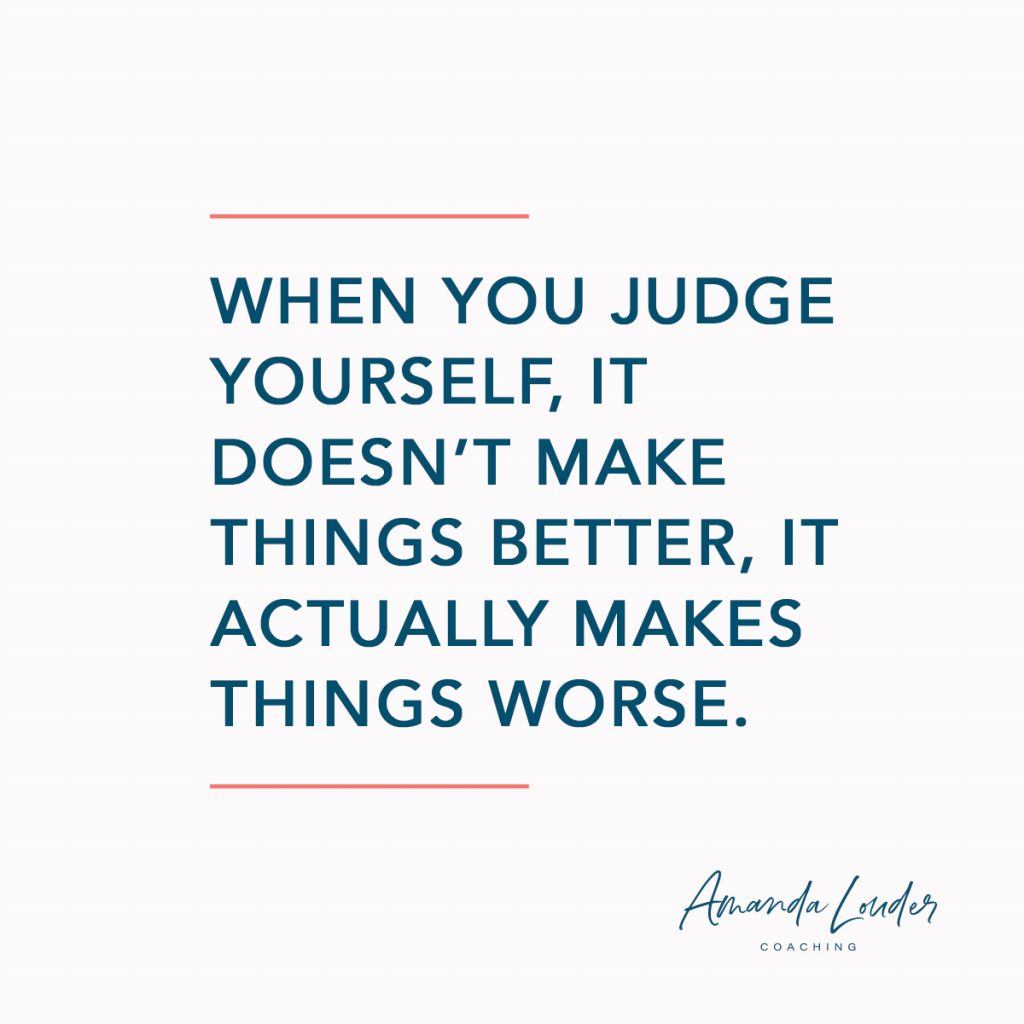
Did the title of this podcast surprise you? It surprises a lot of my clients too. But it actually makes a lot of sense that you don’t like sex. In this episode, we talk about the top reasons why you don’t like sex. Which one will resonate with you? Then we talk about why those reasons make it so you don’t like sex. Maybe in the end, you’ll find that what you’ve been thinking all along may not be the actual problem.




Show Notes:
Follow Amanda on Facebook and Instagram.
Join Amanda’s Private Facebook Group.
Show Summary:
Did the title of today’s podcast surprise you? It surprises a lot of my clients too when I tell them that it’s ok that they don’t like sex. It actually makes a lot of sense why they feel like they don’t like it. Let me share with you the top reasons why women feel like they don’t like sex. I want you to think about which ones resonate for you.
- Sex feels like a chore – I looked up the definition of chore on google and it said “an unpleasant but necessary task.” When you feel like sex is a chore, it’s no wonder you don’t like it. When it feels like sex is something that you have to do instead of something you want to do, that takes all of the fun out of it. Chores aren’t fun, no matter what Mary Poppins says.
- Sex isn’t pleasurable – if sex isn’t pleasurable for you, then of course you aren’t going to like it. So if you haven’t found what works for you to make it pleasurable, or your spouse tends to focus on his own pleasure and not yours, it’s no wonder you don’t like it.
- Sex is something you do for him – if you don’t understand how sex can be FOR you, and not just for your husband, then of course you aren’t going to like it. No one wants to feel like they are giving, giving, giving all the time or being taken from or used. And when you’ve been giving all day to your children and feel like you have nothing left, the last thing you are going to feel like is having to take care of him too. Ew…no!
- Good women don’t like sex – Good women just tolerate sex, right? They do it for their husbands. Good women don’t like sex, enjoy sex, don’t fantasize, don’t use toys, don’t touch themselves, don’t read or watch steamy things to help them get in the mood. Only promiscuous, naughty, gross, nasty women like sex right? And you are none of those things, so you shouldn’t like or want sex.
- You are broken – whether you’ve tried and can’t have an orgasm, you have pain with sex, you have vaginismus, where the muscles in your vagina involuntarily contract and won’t let a penis in, or maybe you have infertility, if you feel like your body is broken, then it makes complete sense why you don’t like sex.
- If you were taught (either explicitly or implicitly) through your family and/or church that sex was wrong and bad, your desires were wrong and bad, that it wasn’t normal to have sexual thoughts and feelings unless you were married, and then were just expected that everything would be fine once you said “I do” then you’ve probably realized your brain doesn’t make that switch, so you just don’t like sex.
- If you have experienced any sort of sexual abuse or trauma, as a child, as an adult, or even within your marriage, it makes sense why you don’t like it.
Now, these are the most common reasons I see with the women that I work with and talk to. Your reasons for not liking sex may be different than the ones I’ve listed here. But what I want you to know is that no matter what your reason is, that it’s ok. Your feelings are valid. This is your life and your experience and it makes sense why you feel the way you do.
But, most women I encounter don’t think it’s ok that they feel this way. They feel a lot of judgement, not only from their spouse, but they judge themselves for not wanting sex. Not liking sex. Not enjoying sex. And when they judge themselves, when YOU judge yourself, it doesn’t make things better, it actually makes things worse. A lot worse.
And this is really the heart of the problem. You see, not liking sex, not having a desire for sex is a symptom. It’s a symptom of a much greater problem. Here’s what I mean…
Let’s take the belief that “sex feels like a chore” for example. It feels like a chore because it feels like something you have to do, something that is unpleasant, for someone else. You aren’t asserting your authority over your own choices and your autonomy over your own body. You sacrifice your own wants and desires (to not have sex) for your partner’s. Now, why you are doing that may seem noble and good. Or you might be doing it to avoid some negative consequences. We are often disconnected (or unaware) of our needs. We have been taught to deny them, or ignore them since we were children in order to be “liked,” to be polite, or to be approved of in some way. But when you do this, it is essentially telling your brain and your body that your own desires don’t matter. This causes resentment and feelings of low self worth because when our needs go unmet for long periods of time, our sense of self suffers and we lose trust in ourselves. We also struggle to trust others. And I don’t think any of us truly want that and know that that isn’t actually good for the marriage. See what I mean about it being a symptom of a greater problem?
Let’s move on to #2. You don’t like sex because it isn’t pleasurable to you. Well, why is that? Your body was designed for pleasure. So if sex doesn’t feel good for you, why? Maybe you haven’t taken the time to understand your body and what feels good either on your own or with your spouse. Maybe you’ve shut down the desire and arousal so much over the years that you’ve become numb and no matter what you do, it doesn’t feel good. Maybe you don’t take enough time during sex to work up to full arousal and orgasm. Why haven’t you taken that time? Because most of the time, as women, we don’t consider ourselves worth taking whatever time is necessary for us to achieve that. Not feeling like we are worth that time, or not owning our own body and pleasure is a problem.
#3 – Sex is something you do just for him. If you haven’t heard, I do a free hour long class entirely on this topic – How Sex Can Be For You. I occasionally do the class live, but you can also watch a free replay of this class by clicking on the “Work With Me” tab on my website AmandaLouder.com. But let me give you a little hint…it’s about your relationship with yourself. Do you see a pattern here?
#4 – Good Women don’t like sex. Why? Why do we believe this? Because we were taught our entire lives that to be virtuous and worthy it depended on our being desirable, but not desiring. We were taught that our sexuality was dangerous and needed to be controlled. We don’t have examples of what a good woman who is sexual looks like. But the truth is, a virtuous woman is sexual because she was created to be by her Heavenly Parents. Good women use sex toys because they know it enhances their pleasure and ultimately their connection to themselves and their spouse. It’s a matter of owning what you were given…which comes from your relationship with yourself.
Do I sound like a broken record yet?
#5 – You’re broken. My friend, you are not broken. You were created exactly how you should be. But it’s a matter of working with what you’ve got. Learning. Utilizing the help that is available. And I guarantee, telling yourself that you are broken isn’t helping to fix it and just makes it worse. Your relationship with yourself is how you talk to yourself. How you talk about yourself. Would you tell your best friend or your daughter that they are broken? If not, don’t say it to yourself.
#6 – When you were taught that sex was dangerous – dangerous to your salvation, dangerous to your body, your soul, your brain isn’t going to just forget that because you got married. Even if you logically know that it’s not dangerous, your unconscious brain, your emotional brain says “DANGER!!! YOU ARE NOT SAFE!” Your nervous system will activate, you will go into fight or flight, which shuts down your non-essential systems (like your sex drive). You will either have a ton of tension and anxiety in your body or you may feel like you go numb. And any time your husband hints that he wants sex, your brain and your body do this. You thinking that he may want sex, your brain and your body do this. It makes complete sense why you don’t like sex when you feel it is dangerous to your sense of self and your well-being.
And of course if you have actually experienced sexual trauma, your brain and your body are going to respond accordingly.
And…we haven’t even addressed issues in your marriage.
Not desiring sex is a symptom of something bigger.
Now, in these examples I’ve given you, it all comes down to your relationship with yourself. How you talk about yourself. How you think about yourself. How you want to be seen. What you want people to think about you. It feels scary and vulnerable to open yourself, fully expose yourself, even to your husband. And this, once again, activates your nervous system. When our nervous system is activated, the way we think, the way we interact, and the way we experience the world around us changes.
Let’s talk about what that looks like in this context.
If you are in fight it might look like: becoming aggressive, name calling, yelling, slamming doors, feeling out of control, ranting, dominating the conversation. So if you find yourself getting upset when your partner brings up sex…you might be in the fight response.
If you are in flight, it might look like: avoiding conflict, leaving the situation, ignoring, trying to escape.
If you are in freeze, it might look like: shutting down, going silent, spacing out.
If you are in fawn, it might look like: people pleasing, deferring to the other person, going along with things even if you don’t want to, denying your own needs and feelings.
Then, when all this happens, there’s usually a ton of self-judgement about it. And then you hide, because of the shame you feel about all of it. The shame you feel about your sexuality, the shame you feel for the little part of you who wants to explore it, the shame you feel over rejecting your husband over and over, the shame you feel about acting this way, and the shame you feel from essentially denying and rejecting a God-given part of yourself.
As coaches, we have a little joke. That no matter what our niche is, we are all confidence coaches. Because what it always comes down to is your relationship with yourself. Even if your relationship with your husband isn’t great, it still comes down to your relationship with you. So yes, I am a sex coach, but what I actually do is help you discover, love, accept, and honor yourself and do this in relation to sex. I help you learn how to calm your nervous system down, so that you can show up the way you want to in your marriage and your sexual relationship.
Sex is just the symptom. I’m guessing that the relationship you have with yourself also shows up in other areas of your life, but sex is the one that seems most pressing to you (or to your husband) right now and that is why we start there. But that is why, in my coaching program we spend the first 6 weeks working on your relationship to yourself.
Week 1 we start working on building awareness. Most likely you don’t even realize how you are talking to yourself and how it is affecting different areas of your life. How it is activating your nervous system. So it’s important to become aware of this way of thinking and what it is creating for you.
Week 2 is where we start working more with emotions. Emotions are the fuel for our lives. Everything that we do or don’t do is because of how we think it will make us feel. We want to get married or have children because we think it will make us feel valued and loved. We don’t want to have sex because we feel insecure, insufficient, used. So we spend 2 weeks looking at our emotions. Emotions are so powerful and until we understand them and learn to accept them as indicators of what is going on for us, instead of resisting, reacting, or avoiding them, we can’t understand ourselves and accept ourselves fully.
Week 4 we work on our belief systems. This is a crucial piece in understanding ourselves better, as well as understanding our sexual relationship. Many belief systems are highly ingrained in us and sometimes we see them just as truth and facts instead of the options that they are. And it’s not just a matter of identifying beliefs, but understanding what those belief systems create for us and learning how to systematically shift them to give us what we actually want in this life. You are never going to have a great sex life when you believe that sex just isn’t for you. And it’s not just a matter of trying to tell yourself that it is for you. Your brain doesn’t work like that. But I teach you how to shift those belief systems in a way that is true and authentic to you and your values.
Week 5 is all about discovering all those thoughts you have (that you are probably not even aware of) about yourself. How you see yourself. How you think others see you. How you want to be seen, and why. This is a crucial piece in uncovering why you show up in your life and sexual relationship the way you do.
Week 6 is all about confidence and how to have it and why you don’t have it now.
After these 6 weeks, then we move to how you are showing up in your marriage and learn some important skills and tools to help you navigate your spouse’s expectations, your expectations, and difficult conversations. Did you know that one of the biggest obstacles to a great sex life is conversations? Not having the skills to be able to communicate what we want to with our spouse in a way that creates more love, understanding and empathy. And again, that comes down to how you are thinking about yourself. If your spouse doesn’t like what you say, can you stand strong in your position in the face of invalidation? Are you more worried about how they are going to react, so you don’t say things as a way to keep the peace? Are you worried that they are going to think you are strange, weird, or wrong? I help you learn how to navigate these kinds of things.
And then after that is all done, then we start working on the nitty gritty details of sex. Helping you have more pleasure, more connection, more intimacy, and more passion.
I want you to have great, amazing, and epic sex! But it all comes down to your relationship with you. I know that it is hard and scary. It seems impossible and you don’t know if you can do it. But I promise you, the struggle and discomfort is totally worth it for the growth that you will see. You may think that you feel good about yourself and feel confident, and that what I am talking about doesn’t apply to you. That sex isn’t really just the symptom. But, I promise you, it is. So let’s not just treat the symptom. Let’s fix the actual problem. Help you become the best you that you can be. Not because you aren’t enough, right now as you are, but because you and your marriage are worth the discomfort for growth. When you got married, you dreamed about this beautiful life that you wanted to have. You knew there would be challenges along the way. And many of those challenges you have been willing to face head on. But sometimes, when it comes to taking a hard look at ourselves, we don’t want to put in the effort. We don’t want to do the work. We are afraid that it won’t work. That we might fail. And what will that say about us? But I promise you that it is worth it. It’s not going to be easy (although I do try to make it a lot of fun), but it is well worth it in the end. You are worth it. Your marriage is worth the effort.
If you are ready to finally tackle this, I want to invite you to sign up for coaching. I have two groups, a day group and an evening group, that are open for enrollment right now. I have an evening group starting Wednesday, October 6 at 7pm MT or the day group starts Wednesday November 10 at 10am MT. You can go to AmandaLouder.com/groups to sign up directly. If you want to talk to me first and make sure it’s a good fit, you can sign up for a free consultation on the homepage of website AmandaLouder.com.



